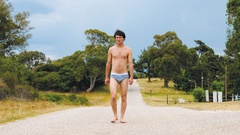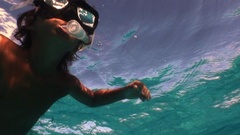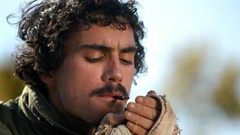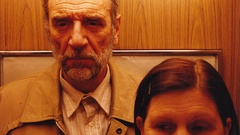The Headless Woman (Argentina) (2008)
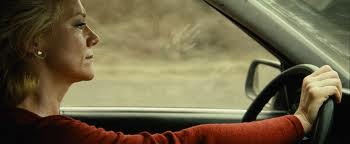
Part of the New Latin American Cinema
| Director: | Lucrecia Martel |
|---|---|
| Certificate: | Unknown |
| Length: | |
| Format: | 35mm |
| Language: | Spanish |
| Country: |
"Disturbing and deeply mysterious, this tale of ghosts and guilt is nothing short of a masterpiece" - Peter Bradshaw in THE GUARDIAN
"One woman's driving accident is at the core of this mysterious exploration of Argentina, destined to become a classic." - THE INDEPENDENT
"Lucrecia Martel is considered one of the most singular filmmakers in the world today" - Discovering Latin America Festival, London, 2008
ABOUT THE FILM

The Headless Woman (2008), is a rapturously reviewed piece.
Reviews
"Disturbing and deeply mysterious, this tale of ghosts and guilt is nothing short of a masterpiece. This is not an easy film to watch, or to understand, but the potency with which it resonates in the imagination is remarkable." - Peter Bradshaw in THE GUARDIAN
"In what could be one of the greatest films ever made about the emotional realities of a damaged mind, this giddily disorientating latest from Lucrecia Martel is a work of frenzied genius." - TIME OUT
"What an extraordinary film Lucrecia Martel’s The Headless Woman is. You’ll leave The Headless Woman wanting to see it again" - THE TELEGRAPH
"One woman's driving accident is at the core of this mysterious exploration of Argentina, destined to become a classic." - THE INDEPENDENT
“Like my other films, The Headless Woman doesn’t end in the moment that the lights go up, it ends one or two days later” Lucrecia Martel interviewed in Reverse Shot.
"The whole thing's disorienting, but it's absolutely precise in its rendering of disorientation - an achievement enhanced by the audio mix which isolates certain sounds, mutes others and generally keeps things off balance." Andrew Schenker.
The plot
There is little or no real plot and we see most of the 'action' from the main character Vero's point of view.
Vero is driving her car whilst searching for her cell phone and hits something on the road. In a brief rear view shot we see something on the road, a dog, a child? Vero doesnt stop to find out. Later we see that the accident has affected her mental state.
Martel shows the subtle interplay between Vero and her well to do bourgeois family, as she becomes more and more disoriented, with her army of dark skinned servants flitting around in the background. An explicit contrast is drawn between the well-to-do extended family and the indigenous poor, one of whom is the possible accident victim. In some ways, then, this is a 'difficult' film, but very rewarding for the careful viewer.
It is a film to listen to, watch and cherish and you'll still be thinking about it days later.
DIRECTOR: LUCRECIA MARTEL
 Internationally critically acclaimed
Internationally critically acclaimed
"A founding member of the New Argentine Cinema that surged to international prominence in the mid-1990s, Lucrecia Martel (born in 1966) is a dominant figure in contemporary world cinema and one of its great stylists." - HARVARD FILM ARCHIVE
"Lucrecia Martel is one of the most singular filmmakers in the world today. At 38, she has already established an utterly distinctive style and set of concerns. Her work is surprising, mysterious, delicately poised between the dangerous and the miraculous." - THE TELEGRAPH
“One of the most prodigiously talented and critically adulated filmmakers in contemporary world cinema” Bomb Magazine
A few Facts about Lucrecia Martel
You can read a great interview with Lucrecia Martel on this link
- Born in 1966
- Born in the northern Argentine city of Salta
- Has made 3 feature films so far: The Swamp (2001), The Holy Girl (2004), and The Headless Woman (2008)
- All three of her films were placed in the decade's top ten Latin American films in a poll of New York film critics.
- All her films are set in the region where she was born
- Her films have been inspired, in a large part, by the Andean culture from her region, and more specifically, by the oral story telling traditions from there
- Lucrecia Martel's films are tipycally hypnotic, mysterious, and deeply immersive
- What she says about her films: "I feel that my films have a certain political aspect. They show how a person can transform the world. It is totally possible for someone to transform the world through sheer willpower and through the collective willpower of others. We are the creators of our own reality"
Other films in the New Latin American Cinema:

18
Film: Hiroshima (Uruguay) (2009)
18 Nov 2010, 7:30 p.m.
Incredible film, at once experimental in its form, challenging in its content, and visually beautiful: this is a non-identified floating object. Best described as a silent musical: no dialogue is heard at all throughout the film, but music from unsigned Uruguay rock/metal/psychedelic bands make the film fly. 24 hours in the life of a singer with autistic tendencies.

21
Film: Alamar (Mexico) (2009)
21 Nov 2010, 7:30 p.m.
A visual poem in the stunning setting of a little house in the blue Mexican sea, where a father shows his 5 year old boy how to go fishing. Between documentary and fiction, this little gem has won prestigious prizes, among which the highest prize (tiger award) at the Rotterdam Film Festival.

25
Film: The Dog Pound (La Perrera, Uruguay) (2006)
25 Nov 2010, 7:30 p.m.
Winner of the Best Film Award at the Rotterdam Film Festival, and elected Best Uruguayan Film of 2006 by the country’s Association of Film Critics, this is a slow and contemplative film about David, a 25-year-old who loves smoking pot, and has a heroic capacity for doing nothing. Tragicomedy of a slacker, shot on 16mm.

28
Film: Whisky (Uruguay) (2003)
28 Nov 2010, 7:30 p.m.
Multi-awarded at some of the most prestigious international film festivals (Cannes, Tokyo, Chicago, Peru, Spain, etc), this is a very subtle film about human communication, or the impossibility of it. The owner of a sock factory asks one of his employees to act as his wife during the visit of his brother.


